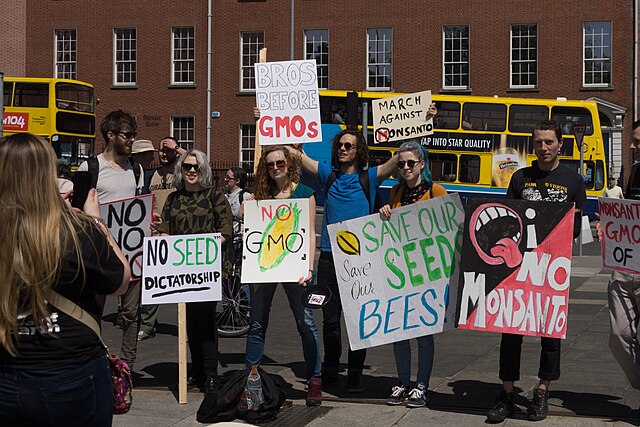GMWatch publishes historic recordings of scientist Arpad Pusztai
By Staff,
GMWatch
| 08. 10. 2025
Protesting Against Monsanto and GMOs
by William Murphy, CC2.0
GMWatch has published a series of interviews with the late scientist Dr Arpad Pusztai, conducted in March 2002 by the journalist Andy Rowell, as part of his research for his book, Don't Worry, It's Safe to Eat. Dr Pusztai carried out the first safety research on a GM food plant. Andy kindly gifted this interview archive of recordings to GMWatch and wishes them to be made public.
The archived page of recordings is here.
In these interviews Dr Pusztai describes the results of his landmark 1999 study that found that GM insecticidal potatoes had toxic effects on rats. He also details the political fallout from his public announcement of these findings in a brief 150-second appearance in an episode of the documentary series World in Action. Pusztai said that based on his findings, he would not eat these potatoes and that it was unfair to use our fellow citizens as guinea pigs by putting unsafe GM foods into the food supply.
The GM potatoes were engineered to express an insecticidal lectin (type of protein)...
Related Articles
By Jonathan Matthews, GMWatch | 12.11.2025
In our first article in this series, we investigated the dark PR tactics that have accompanied Colossal Bioscience’s de-extinction disinformation campaign, in which transgenic cloned grey wolves have been showcased to the world as resurrected dire wolves – a...
By Jessica Hamzelou, MIT Technology Review | 11.07.2025
This week, we heard that Tom Brady had his dog cloned. The former quarterback revealed that his Junie is actually a clone of Lua, a pit bull mix that died in 2023.
Brady’s announcement follows those of celebrities like Paris...
By Lauran Neergaard, AP News | 11.03.2025
WASHINGTON (AP) — The first clinical trial is getting underway to see if transplanting pig kidneys into people might really save lives.
United Therapeutics, a producer of gene-edited pig kidneys, announced Monday that the study’s initial transplant was performed successfully...
By Meagan Parrish, PharmaVoice | 10.10.2025
When CEO Ben Lamm steps into the spotlight, it’s usually to talk about his efforts bringing extinct animals back to life. Once a far-flung idea, Lamm and the company he heads, Colossal Biosciences, have proven they can pull it off...




